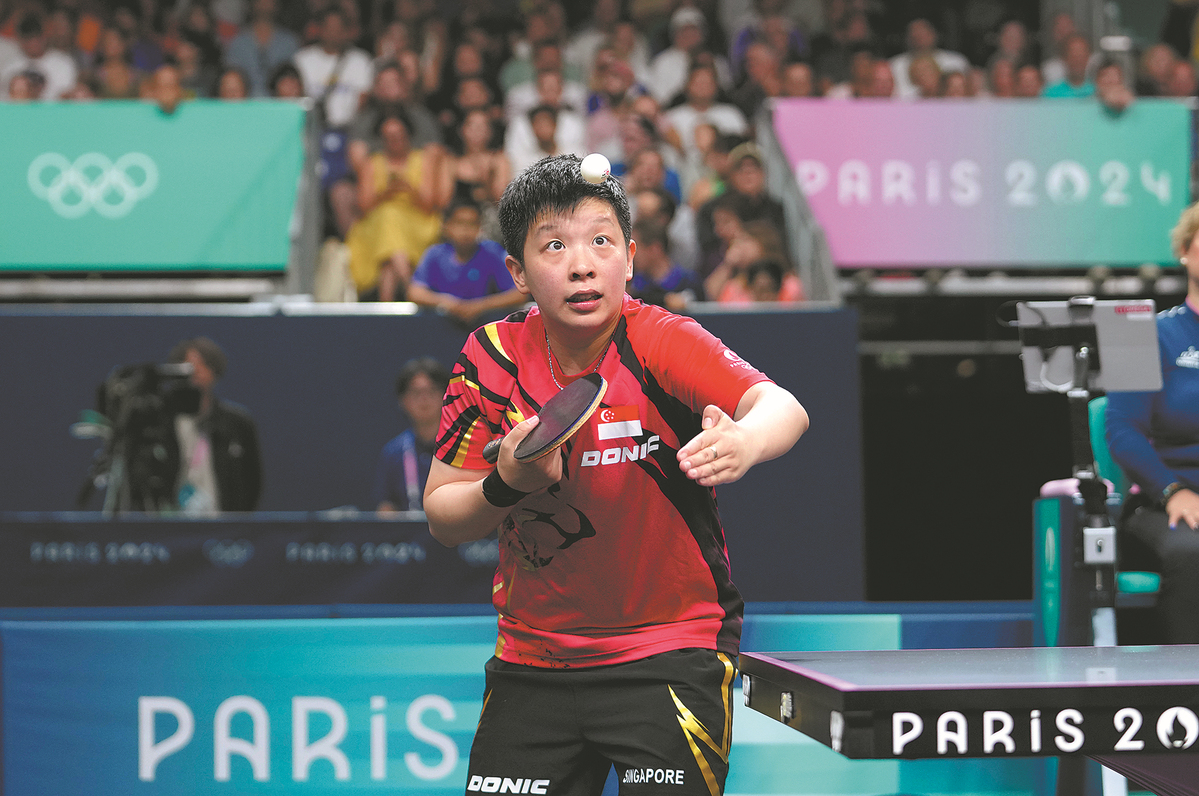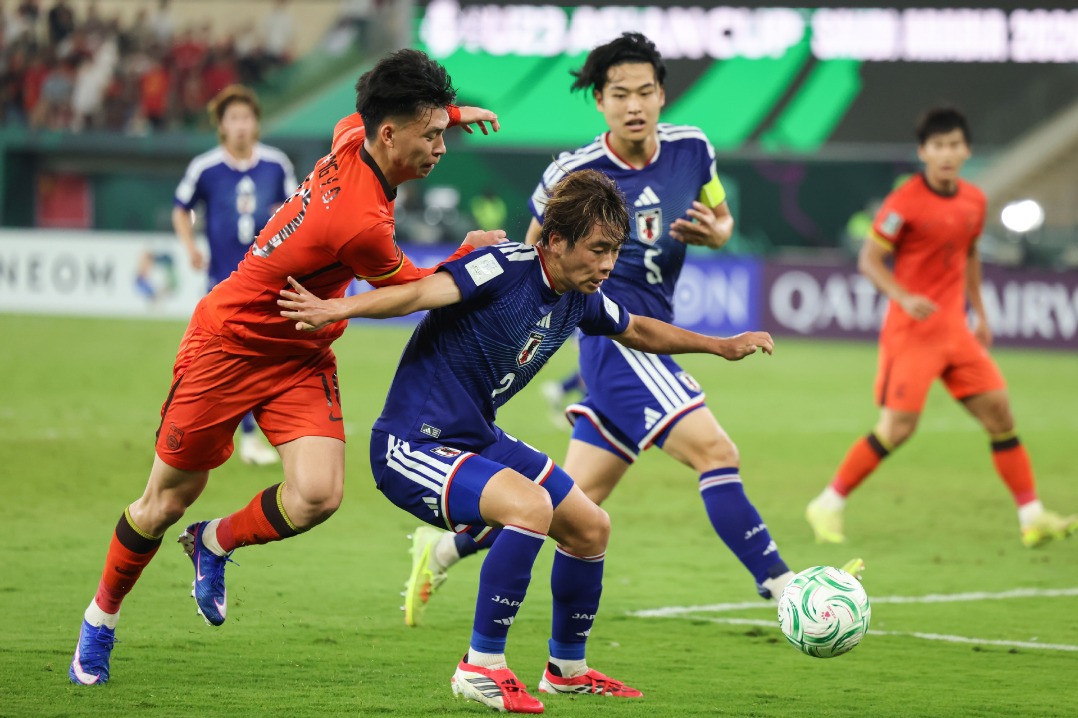Chinese-born athletes fly the flag for adopted countries
Overwhelmed by talent at home, some competitors are getting second shot at Olympic dream


Chinese media have dubbed these sporting emigrants the "foreign legion". While they only have a slim chance of beating better players from their country of birth, they relish the opportunity to participate in international competitions.
"If I'd stayed in China, I probably would have never had the chance to compete at the Olympics because there is always too much talent coming from the pipeline of the Chinese system," Zeng Jian, 27, who represents Singapore in table tennis, told China Daily after her round of 32 match in Paris.
The four-time Commonwealth Games medalist was born in China's Hunan province. She started table tennis training at the age of 6 at the Shichahai Sports School in Beijing. In 2013, she represented the Beijing team in the Chinese Table Tennis Super League, playing doubles with former world champion Guo Yan.
With the domestic competition too intense for her to advance any further, she joined the Singapore Table Tennis Association in late 2014.
Zeng said she has no regrets about the life-changing decision. "I feel grateful for the Singapore association offering me a chance where my skills and years of hard work could be appreciated," she said, adding the switch helped her play in the international arena, which wouldn't have happened if she had stayed in China.
With cultural and language similarities to China, since the late 2000s Singapore has emerged as an ideal destination for Chinese-born table tennis players seeking new opportunities.
Bolstered by former Chinese youth team members Feng Tianwei and Wang Yuegu, the Singapore women's team shocked the Chinese squad with a 3-1 win at the 2010 World Team Championships final. It is the biggest upset win of the "foreign legion" against their birth country.
To encourage the development of homegrown talent across the world, the International Table Tennis Federation tightened its rules on athlete naturalization in 2008. It banned athletes older than 21 who had switched nationalities, from representing his or her adopted country in international competitions.
The rules also impose a waiting period of at least three years before a naturalized athlete can represent his or her new national, or regional, association.
























